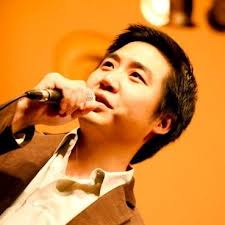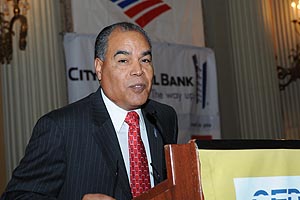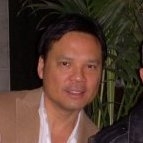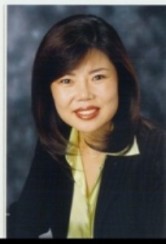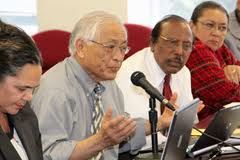A response to Miyoung Yoon Hammer’s “Psychological Homelessness: Healing Intergenerational Wounds” and Hsu Huan-Zung’s “In Karmic Tones.” Dr. Yoon Hammer’s article can be found in SANACS Journal #4.
By Felix Huang
There was a time, on occasions when I returned to my hometown and stocked up on leafy greens at one of the Chinese supermarkets, or got my boba fix at one of the ubiquitous tea houses, I would feel the urge to scream, “People, there’s a whole world out there, beyond your nice little ‘#bobalife’ bubble, full of racial injustice and trauma and microaggressions and stereotype threat!”
Although I grew up in one of the Asian ethnoburbs of the San Gabriel Valley in LA, I attended a small, predominantly white college. There I experienced up-close systemic and institutional racism, alive and well even in an organization full of kind, well-meaning people. And as much of a bubble as the college is, it’s also in many ways a microcosm of wider American society. Thus since graduating from said college, my eyes have been shaped to identify the pervasiveness and effects of such systemic racism.
I never actually acted on my urge to scream at those in my hometown, and admittedly I knew not everybody’s story. But nonetheless, I felt a little like one returning to the cave in Plato’s allegory.
~~~
My family history is one of trauma. My maternal grandfather fled mainland China for Taiwan in 1949, but since he was not a Kuomintang member, he wasn’t taken care of by the KMT government as many other mainlanders in Taiwan (外省人) were. Most members of his family did not make it out of mainland China, and some, including his father, were imprisoned and tortured to death by the Communist government. Meanwhile my maternal grandmother, a benshengren (本省人 – Han people who were already in Taiwan prior to 1949), grew up with an abusive, alcoholic, and often absent father, and without her mother, who had passed away when my grandmother was quite young.
These stories were relayed to me at a young age. My immigrant mother made sure I knew where I came from, transmitting not only Chinese and Taiwanese history, culture, and language, but also our family history, including the sordid details.
My family is certainly not alone in having a traumatic history, but I found out that many of my peers were not told their stories of family trauma until they were much older, if at all. And they seemed to do just fine, or even better, without knowing.
~~~
Regarding the healing of intergenerational memories, Dr. Miyoung Yoon Hammer wants her children to “know who they are and where they come from… but… not be weighed down by the darkness of the painful memories that threaten to become their intergenerational family legacies” (SANACS 4, 73).
Meanwhile, Pete Hsu suggests “staying in relationship: conversing and sharing and being together, fighting and rejecting and breaking apart, understanding that something in us will hang on and heal and get back to the business to growing. And, as our stories entreat us, that though much is lost, much abides.”
Many times I feel paralyzed by my awareness of systemic racial injustice.
But for whatever reason, my awareness of my family history has not had the same debilitating effect.
I’m sure being here in the US and more than a step removed has something to do with it, whereas racial injustice is a close, everyday reality in America. The spatial distance from the family history has been beneficial in that I am deeply aware of it, but not formed so directly by the negative effects of it. The awareness of the stories has cultivated greater empathy for why my maternal grandparents live in fear and have tribalist tendencies, but I’ve avoided being negatively shaped by and prisoner to the effects of their story. I am neither ignorant of nor merely reactionary to their story, but rather there is a knowing accompanied by a sort of purposeful and dialectical forgetting.
I’m still trying to figure out how to apply that process to the trauma of being a person of color in a white supremacist society. But spending four months recently in Taipei, Taiwan has helped. In Taiwan, people no doubt have an awareness of being Taiwanese, but because the fabric of society is different, there is not nearly as much identity policing as in the States. As a Taiwanese American, I was subject to a little bit of the policing (you’re not acting Taiwanese enough), but also felt a sense of belonging, and was granted a respite from many of the specific issues I deal with in America. And I’ve come back as less of a reaction to the white supremacist structure, but no less aware of it.
Maybe there is a time to disengage, to no longer be in relationship, to “take a break.” And then maybe there is a time to come back to it.
We need to interact with our legacies. In order to converse and share, as Pete suggests, we need to have material to share and converse on. But we can also, where possible, take control of our legacies and actively write the next chapters, maybe even changing the story arc. And that might require some purposeful forgetting. There’s a difference between ignorance, never knowing in the first place, and purposefully forgetting, moving on.
~~~
Sometimes I still want to scream at my Asian American peers in the SGV, and other times I wonder if it’s better that (what I perceive to be) their blissful ethnobubbletea existence shouldn’t be shattered.
And sometimes I wonder whether learning about my family trauma at such a young age was more helpful or harmful.
When the Zimmerman verdict was declared, I ceased to wonder. This is why we need to know, because we East Asian Americans may have escaped some of the more obvious effects of injustice and trauma for now, but it sure as hell is affecting others.
————————–
 Felix Huang is a contributing writer for Dime Magazine, a basketball lifestyle magazine. Check out his articles here, as well as his blog here.
Felix Huang is a contributing writer for Dime Magazine, a basketball lifestyle magazine. Check out his articles here, as well as his blog here.
.
Miyoung Yoon Hammer’s article, “Psychological Homelessness” can be found in SANACS Journal 4, 2012-2013. Order your copy HERE.
The issue of “Healing of Memories” will comprise the afternoon session of ISAAC’s 5th Symposium, which will be held on October 5th at Evergreen Baptist Church SGV.
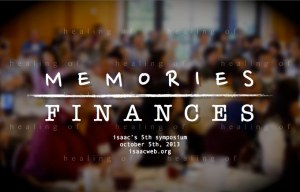
Registration Available HERE.

